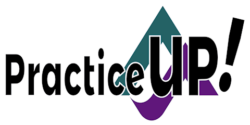When someone is desperate, afraid, frustrated, and therefore, possibly angry, they sometimes make choices that turn out to be dangerous to themselves and others.
Smart advocates know that those descriptors can easily fit patients who feel as if there is no hope and no way forward. Their plight may also be exacerbated if they are dependent on drugs they can no longer take (especially opioids) or if they feel as if there is a treatment that MIGHT help, but they can’t avail themselves of it.
Desperate times lead to desperate measures – and those measures can be dangerous to advocates who don’t take steps to keep themselves safe.
No. I’m not suggesting to arm yourself. But I am talking about taking measures for personal safety. I’m suggesting you take some simple and inexpensive steps to protect yourself and your family’s security too.
(To make the distinction: this is about physical safety. Someday we’ll post about privacy and internet security, but that is not today’s topic.)
1. Use a business address: Years ago when I first started my business, I was actually stalked by a patient who had read one of my books, who then emailed me, and told me he was coming to find me. A few other email exchanges suggested he was just… whacko. I was truly frightened!
Go online, and as best you can, remove any pairing of your name with your residential address. If you have a physical office address, that’s great – use that. Otherwise get a post office box (or another mailbox service) and use that for your business address. If someone wants to find your residential address, he or she can probably do it. But that doesn’t mean you have to make it easy.
2. Don’t invite clients or potential clients to your home. This is simply an extension of #1 above. If you typically work from home, and you need to meet with your client or potential client, choose the local library, or maybe the board room at the Chamber of Commerce. You can meet at a coffee shop, of course, but remind them of your wish to keep the conversation private on their behalf and see what choice they make.
3. Don’t call on clients in their own homes unless you know it will be safe. Don’t assume it will be safe because someone is sick. You don’t know who else might be there. After you have worked with someone for a period of time, and you trust each other, you might bend this rule somewhat. But you have other choices for meeting (see #2) above. Better to be safe.
4. Perhaps less about safety than the others, but still important and useful for professional purposes – use a business phone number. There are 800 number services, there are Voice Over IP (VoIP) services (internet phone), and even Google Phone is a good (free) choice. You can set these up to work with forwards, or alternative rings, so you can use one handset or cell phone for all of them, but you will know the difference between a personal call and a business call. This is good practice for a number of reasons because it means you can always answer your phone with a good, confident, business voice – or less formally for personal calls.
The “safety” aspect of this is simply that if you do use a landline, it can be traced to your residential address – see #1 above.
Those are just a few simple and inexpensive ways to stay safe and professional for very little money. You may be able to think of others!

Today’s tip is simply to keep a safety and professional mindset as you continue growing your advocacy practice.
Like PUP! TIPS?
Subscribe to find a new tip in your inbox twice a month! Sign Up for TIPS
Sign Up for TIPS

